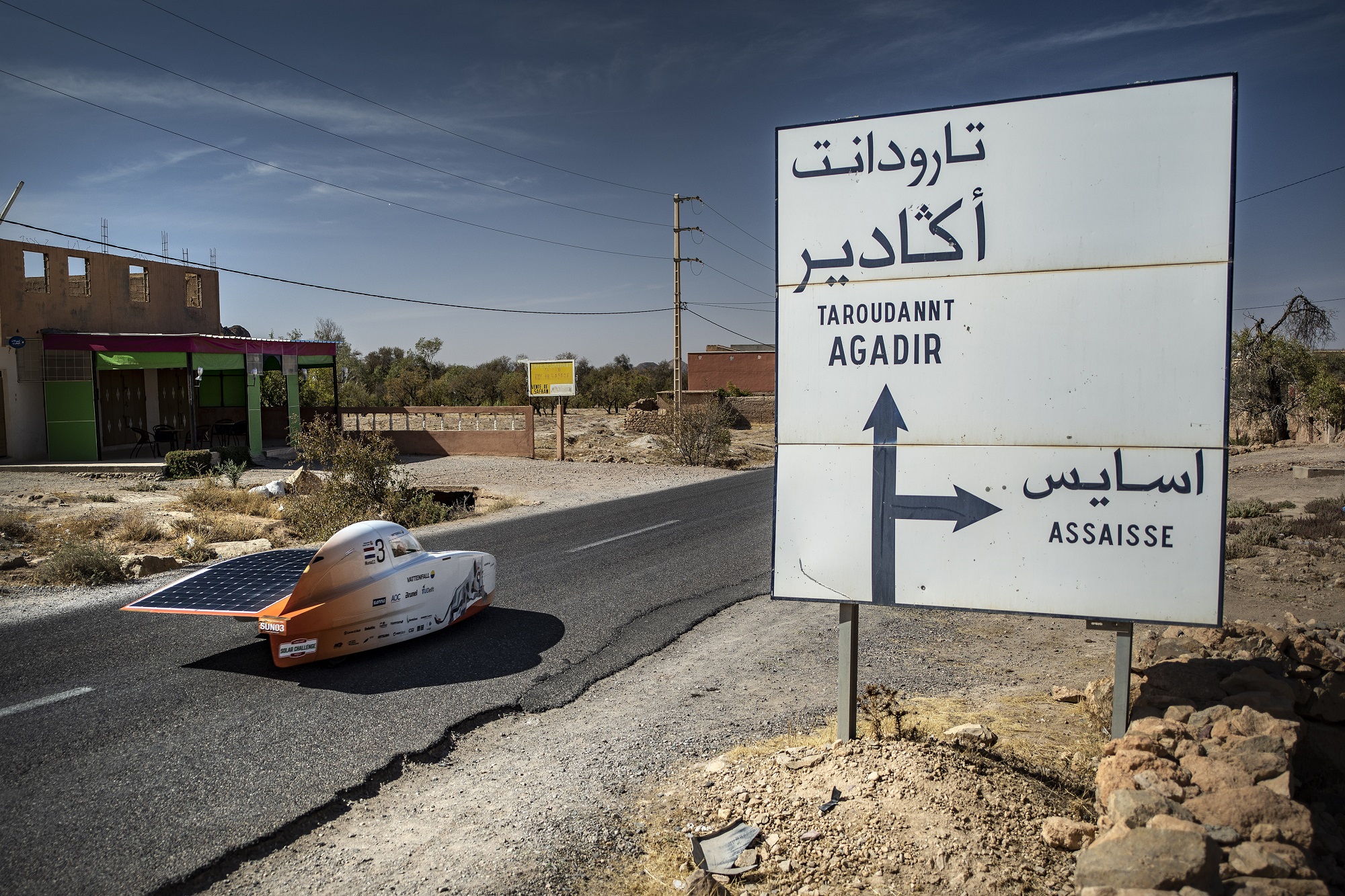The Vattenfall Solar Team finished third in the Solar Challenge Morocco. The TU Delft students had many setbacks with half the team having gastroenteritis.
Nuna11 on the way to the finishing line in Agadir. (Photo Vattenfall Solar Team)
The race, that finished last Friday (29 October), went through the Sahara with its camels and endless sand dunes, and had to contend with chaotic traffic, sand storms and gastroenteritis.
The race in Morocco was held for the first time and was an alternative for the World Solar Challenge in Australia that was cancelled because of corona restrictions.
The fifth and last stage was a struggle for the TU Delft team. Nine of the 17 team members caught gastroenteritis and were so sick that they had to pull out. They were directly brought to the finish in Agadir.
The cars had a lot of difficulty with the steep slopes of the Atlas Mountains
Despite this setback, the TU Delft team was still doing well with their solar car the Nuna11. They overtook their Belgian competitors from Solar Team Agoria and, a little later, the number one, Solar Team Twente. But their advantage disappeared later that day. The car needed to be pulled aside to deal with a technical defect. Nuna11 was then unable to overtake the other teams and ended up in third place.
Crossing camels or goats
The route through Morocco turned out to be a marathon, say the students in their blog. Nuna11 had to regularly suddenly brake for crossing camels or goats, had to swerve to avoid a sand dune on the road through the Sahara. A gale flattened part of the camp forcing the team members to sleep in the support cars and the gastroenteritis felled many of the team members who could no longer work on the last part of the race.
The cars, mostly designed for a race through flat Australia, had a lot of difficulty with the steep slopes of the Atlas Mountains. The heavy cloud cover on the first day also gave problems, causing a lack of energy generation through the solar panels. Half the participants appeared to be unable to finish all the stages within the time limits.
For the TU Delft team the problems started even before the race started. Morocco put the Netherlands on red alert on 20 October. All flights from the Netherlands to Morocco were cancelled. For the TU Delft students this meant that their team coach, Marc Lammers, could not join the race.
The corona pandemic was already the reason that the organisers of the World Solar Challenge in Australia cancelled the race. The best in the racing world are usually at the start of this biennial race in Australia. Several leading teams, including the Vattenfall Solar Team, signed up for the Solar Challenge Morocco. The competition was thus viewed as the unofficial World Championship solar race.
Do you have a question or comment about this article?
tomas.vandijk@tudelft.nl


Comments are closed.